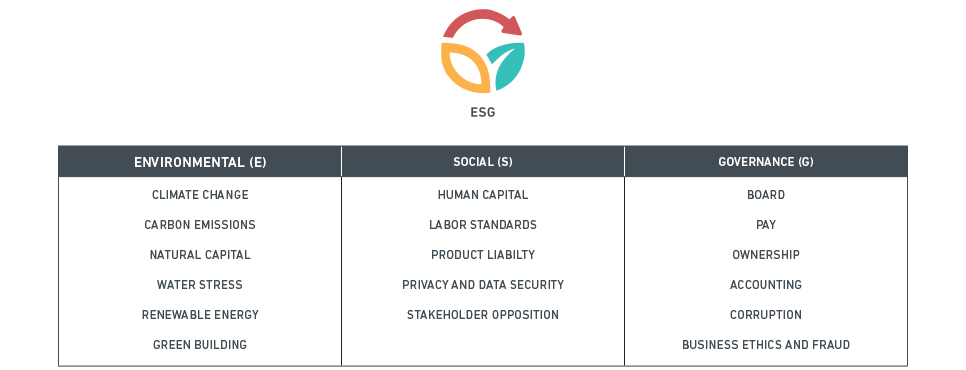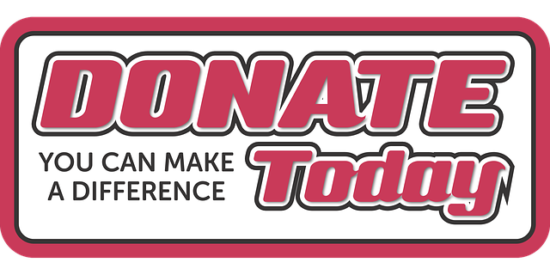If you are planning on hiring a financial advisor, you need to know the difference between an “investment plan” and “financial plan”. An investment plan maps out an investing strategy to help you meet your long and short term goals, such as retirement or buying a house. A financial plan is a more comprehensive evaluation of your financial situation that can address savings, budgeting, insurance, college planning, taxes, estate planning, and retirement, as well as investments. What services does your advisor provide?
Read moreYear: 2018
Nobody likes to think about illness or death, but planning is essential to protect your family and make sure your wishes are followed with regard to your assets and estate. Here are some easy, quick steps to get started.
Read moreSpreading holiday cheer doesn't have to end in a financial hangover. It is entirely possible to purchase gifts, be festive, and participate in this time of year without blowing a hole in your budget. Here are 5 useful tips to help you stick to your budget during this holiday shopping season that you can implement at no cost to you.
Read moreSeveral studies have shown a number of benefits when you buy from an independent, locally owned business, rather than a nationally owned business. This includes a reduced environmental impact, creating more local jobs, more investment in the local community, a stronger local tax base, and better service.
Read moreMany Baby Boomer parents confess that they either don’t know how to talk to their kids about money, have failed to set appropriate limits with their children or don’t feel confident in their own financial management skills to share insights. As a result, 1 in 3 young adults are still living at home. If you’ve found yourself still rooming with your millennial child, follow these tips to help get your financially-dependent child off your payroll.
Read moreIf the very idea of financial planning makes you break out in hives, you’re not alone. A new study found that perceived financial well-being — feeling secure about not only the state of your current situation but how well you’ve planned for the future — holds the key to your overall well-being. Your financial security can affect you as strongly as job satisfaction, relationship stability, and physical health combined.
Read moreLeadership is a both a give and take relationship. If you want employees to go the extra mile, you have to go the extra mile too. If you want loyal employees - treat your people well. Too often bosses do the exact opposite. Remember, people don’t quit bad jobs, they quit bad bosses. If you are the boss and aren't doing the 7 things in the following article, your employees will probably be looking for better opportunities elsewhere.
Read moreBuying a business generally is less involved and less costly than building a business from the ground up. An existing company already generates revenue and has an existing customer base. The challenge is finding the right business to purchase. Some important things to consider:
Read moreThe dreaded “Kiddie Tax” is undergoing some changes in 2018, both good and bad. For those familiar with the Kiddie Tax, rates on dependent’s investment income will no longer be subject to the parent’s marginal tax rate. For some this is welcomed news and for others there is a catch. This article will breakdown the Kiddie Tax changes and how exactly it will impact taxpayers in 2018 and beyond… 2025 if the changes aren’t extended.
Read more"Getting fired" may conjure dramatic scenes of tears, shouting and phones being slammed down. But, according to bestselling management author and CNBC contributor Suzy Welch, most real-life terminations look nothing like the ones on TV. "There's rarely boardroom drama or a public display," Welch tells CNBC Make It. "And there's never tense music. Nope, in real life, being 'let go' tends to be a rather quiet affair. In fact, sometimes the warning signs are so subtle that many people don't even realize they're in imminent danger." But if you pay attention, and listen closely, you can often see the writing on the wall. If your manager uses one of the following three phrases, Welch warns you might be about to get fired.
Read moreSoon after donning their caps and gowns, recent college graduates should develop their first (of many) financial plans to make sure they’re prepared for all the twists and turns of the ‘real world’. This may be the first time many of them are managing their finances on their own, and they may not know where to begin. By following the below tips, new grads will be off to a great start in preparing for a financially successful future:
Read moreHave you ever wondered what happens to your email account when you die? What about your Facebook account? Typically, access to digital accounts – email accounts, blogs, social media accounts, virtual currency, online financial accounts, websites, etc. – is denied. Before his term expired, former New Jersey Gov. Chris Christie signed into law the Uniform Fiduciary Access to Digital Assets Act (“Act”). The Act should help with the management of digital accounts if someone becomes legally incapacitated or dies.
Read moreOne perplexing question investors often face is whether to invest their capital all at once in the form of a lump sum or position it in fixed amounts at regular intervals – a strategy commonly referred to as dollar-cost averaging. Studies have found that investing the entire lump sum at once generally leads to slightly better returns over the long-term. Practically speaking, however, many investors prefer the short-term risk reduction dollar-cost averaging can provide.
Read moreWhether you're talking out loud, ghostwriting for your CEO, updating a corporate blog, selling a product, or finishing your doctoral thesis, trimming these 15 words from your vocabulary will make you sound smarter. To see the list of words and reasons why you shouldn't over use them, click the following link:
Read moreWhat is a Consanguinity Chart and when it is needed? This is a perfect follow-up to my last post, which covered the difference between an Heir and a Beneficiary. This topic is a perfect follow-up to my last post, which covered the difference between an Heir and a Beneficiary. Who inherits your assets if you don't have a Will or if all the named parties in your Will are predeceased? The answer mostly depends on the intestacy laws of your home state and the family relationship each surviving relative has with the deceased person. Here is a short but interesting video on "consanguinity" (derived from the Latin word for blood relation) by HeirSearch, a company that helps executors meet their fiduciary responsibilities in identifying and finding heirs.
Read moreThe terms Beneficiary and Heir both refer to someone who receives an inheritance after someone passes away. However, while the terms are often used interchangeably, they do not always refer to the same individual or set of individuals. Heirs can be beneficiaries but beneficiaries are not always heirs.
Read moreFor some young adults, having a full-time job doesn't translate into financial independence from their parents. According to a recent survey, nearly a quarter (24 percent) of millennials who are fully employed report receiving help from their parents with bill-paying. Cell phone and car insurance bills were reported as the top items, but rent, student loans, and credit card debt are also on the list.
Read moreGrowth of ESG investing by institutional and retail investors has exploded in recent years! Should you get involved? ESG stands for Environmental, Social and Governance and ESG investing means favoring companies with good track records in these areas. It is a term that is often used synonymously with sustainable investing, socially responsible investing (SRI - my favored term), or impact investing. ESG factors refer to industry specific key issues such as climate change, human capital and labor management, corporate governance, gender diversity, privacy and data security, among others. Lately, gun control issues have been a hot topic in the news. Studies have shown that ESG investing does not negatively performance so contact me if you'd like to learn how to incorporate ESG investing into your portfolio!
Read moreStarting in 2018, single taxpayers can claim a $12,000 standard deduction while married taxpayers get a $24,000 standard deduction. Additionally, state and local tax deductions are limited to $10,000. The combination of these changes means that many people will no longer see a tax benefit by itemizing their deductions. However, if you don't itemize your deductions, then you don't get a tax benefit to making a charitable donation either. For those over age 70 1/2 with IRA assets, making a Qualified Charitable Distribution (QCD) is a tax-savvy strategy that allows you to continue to get a tax benefit from being charitable.
Read moreWhen to start collecting social security benefits? You can start collecting a reduced benefit as early as age 62. Although it might not be the best financial decision, claiming early social security benefits is a popular strategy according to a report by the Center for Retirement Research. Some in this group of recipients may still work, but they have to worry about an "earnings test", which may result in a temporary reduction in social security benefits. A common myth is that these benefits are lost forever, but the truth is that they will eventually be recouped if you live long enough.
Read moreIt is that time of year to consider making an IRA Contribution. Start building your nest egg. You know you should do it! Read on for the details...
Read moreWant to boost your performance at work? Pick out a colleague who is really good in an area where you want to improve - and move your desk next to him or her. Proximity to high achievers can lift people’s performance in various jobs, via inspiration, peer pressure or new learning, a growing body of research shows. The findings offer a silver lining to anyone annoyed at the current fad of flexible office-seating arrangements; employees can use them to their advantage.
Read moreI was one of the 30 founding members of the XY Planning Network in 2014. With a mission to offer fee-only financial planning to generations X/Y, the group has grown to about 500 advisors across the country and was recently featured in the NY Times.
Read moreThrough New Year's, Bitcoin and other cryptocurrencies were HOT. Prices were hitting new highs almost daily and rose nearly 500% in just the last 6 months of 2017. Considering this meteoric rise, it is understandable that news coverage was incessant and people were asking for my thoughts. While I do not consider myself an expert on cryptocurrency or blockchain technology, it is my responsibility as a financial advisor to understand enough to offer an opinion on the subject.
Read moreMy name was listed along with the other award winners in this month's New Jersey Monthly magazine! Of the nearly 4500 NJ-area wealth managers considered for the award, only the top 9% were named 2018 Five Star Wealth Managers.
Read moreThe CFP Board put out this 30-sec clip showing how easy it is to be duped by someone claiming to be a real financial planner. It's really funny... but a little scary too. Please make sure to check your advisor's credentials! I recommend an experienced fee-only certified financial planner professional.
Read more
























